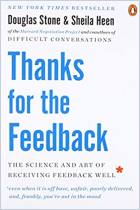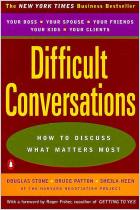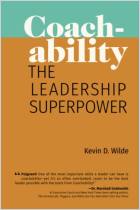In 1999, Sheila Heen, Douglas Stone and Bruce Patton published Difficult Conversations: How to Discuss What Matters Most. It was an immediate hit and is now a classic of business literature. It took them 15 years to write a follow-up, but when the time came, they knew what topic to broach. Working with corporations and nonprofits, they often asked, “What are your hardest conversations?” and “feedback” always ranked among the top answers. In this talk, Heen and Stone discuss the obstacles to giving feedback, as well as the benefits of learning how to interact with feedback.
Feedback sits at the crossroads of two human needs: the desire to be accepted as you are and the seemingly conflicting desire to learn, grow and improve.
Although the aim of feedback is to help people to grow, it has the power to make receivers feel like they’re subpar at the moment they receive the feedback. Thus, feedback jostles in a tug of war between the human need for love and acceptance and the need to learn and develop.
Painful as it is, feedback is vital if you want to flourish, because everyone has blind spots. You’re missing information about yourself that others around you can easily provide if you listen. And like many painful experiences, the feedback that hurts the most can oftentimes be the most helpful.
Your sensitivity to feedback determines whether you choose to accept it.
Interacting well with feedback is a learnable skill. It doesn’t necessarily mean you must accept feedback. Rather, you should try to engage with it, comprehend it and process it. The first step to improving how you receive feedback is to be aware of how it affects you.
Each...
Sheila Heen and Douglas Stone are lecturers at Harvard Law School. Heen works with the Harvard Negotiation Project, and is the CEO of Triad Consulting, where Stone is a principal.

























Comment on this summary or Start Discussion